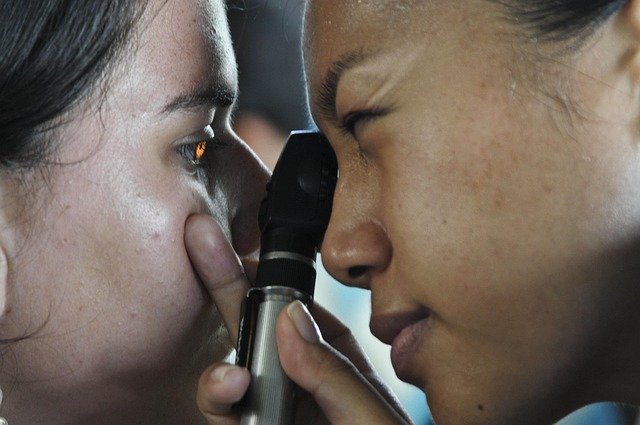The Importance of Early Detection in Treating Chronic Kidney Disease
Chronic kidney disease (CKD) is a progressive condition that affects the kidneys' ability to filter waste and excess fluids from the blood. Early detection of CKD is critical in slowing its progression and improving overall health outcomes. With timely intervention, individuals can manage the disease effectively and reduce the risk of complications.

Chronic kidney disease (CKD) represents a growing health challenge across the United Kingdom and globally. The condition develops gradually, often without noticeable symptoms in its early stages, making early detection both challenging and critically important. When kidney function declines, the body’s ability to filter waste and maintain fluid balance becomes compromised, leading to serious health complications if left unaddressed.
The significance of identifying CKD early cannot be overstated. Research consistently demonstrates that patients diagnosed in stages 1 or 2 have substantially better outcomes than those identified later. Early detection allows healthcare professionals to implement interventions that slow disease progression, manage complications, and preserve remaining kidney function for as long as possible. Regular screening for at-risk populations, including those with diabetes, hypertension, or family history of kidney disease, forms the foundation of effective early detection strategies.
What You Can Do to Help Prevent Progression of Kidney Disease in Type 2 Diabetes
Type 2 diabetes stands as one of the leading causes of chronic kidney disease, with elevated blood sugar levels damaging the delicate filtering units within the kidneys over time. Individuals with diabetes can take several proactive steps to protect their kidney function. Maintaining tight glycaemic control through medication adherence, dietary modifications, and regular monitoring significantly reduces the risk of diabetic nephropathy.
Blood pressure management proves equally vital, as hypertension accelerates kidney damage in diabetic patients. Many healthcare providers recommend keeping blood pressure below 130/80 mmHg for those with diabetes and CKD. Lifestyle modifications including reducing sodium intake, maintaining a healthy weight, engaging in regular physical activity, and limiting alcohol consumption all contribute to better outcomes. Additionally, certain medications such as ACE inhibitors or ARBs may be prescribed specifically to protect kidney function in diabetic patients.
Treatment for Chronic Kidney Disease
Treatment approaches for CKD vary depending on the stage and underlying cause of the disease. In early stages, treatment focuses primarily on addressing the root cause, whether diabetes, hypertension, or another condition, while implementing measures to slow progression. This typically includes medication management, dietary adjustments to reduce protein and sodium intake, and regular monitoring of kidney function through blood and urine tests.
As the disease advances, treatment becomes more comprehensive. Patients may require medications to manage complications such as anaemia, bone disease, and electrolyte imbalances. Phosphate binders, erythropoiesis-stimulating agents, and vitamin D supplements commonly feature in treatment regimens for advanced CKD. When kidney function declines to less than 15 percent of normal capacity, renal replacement therapy becomes necessary, either through dialysis or kidney transplantation.
Collaborative Care for Chronic Kidney Disease
Managing chronic kidney disease effectively requires coordination among multiple healthcare professionals. Collaborative care models bring together nephrologists, primary care physicians, diabetes specialists, dietitians, pharmacists, and nurses to provide comprehensive support. This team-based approach ensures that all aspects of a patient’s health are addressed, from medication management to nutritional counselling and psychosocial support.
Patients benefit significantly from this coordinated approach, as it reduces the risk of conflicting treatments, improves medication adherence, and provides multiple touchpoints for education and support. Regular multidisciplinary team meetings allow healthcare providers to review patient progress, adjust treatment plans, and identify potential complications before they become serious. Many NHS trusts across the UK have established dedicated CKD clinics that exemplify this collaborative model.
Interventions for Chronic Kidney Disease
Beyond standard medical treatments, various interventions can improve outcomes for CKD patients. Dietary interventions play a crucial role, with specialized renal diets designed to reduce the burden on compromised kidneys. These diets typically limit protein, sodium, potassium, and phosphorus while ensuring adequate caloric intake and nutrition.
Physical activity interventions, tailored to individual capabilities, help maintain cardiovascular health and overall wellbeing. Smoking cessation programs prove particularly important, as tobacco use accelerates kidney function decline. Patient education programs empower individuals to understand their condition, recognize warning signs of complications, and actively participate in their care decisions. Psychological interventions, including counselling and support groups, address the emotional challenges of living with a chronic condition.
Interprofessional Care for Chronic Kidney Disease
Interprofessional care extends the collaborative model by emphasizing shared decision-making and integrated communication systems. This approach recognizes that effective CKD management requires input from diverse healthcare disciplines working in concert rather than parallel. Interprofessional teams meet regularly to discuss complex cases, share expertise, and develop unified care plans that reflect the patient’s goals and preferences.
Communication platforms, including shared electronic health records and secure messaging systems, facilitate real-time information exchange among team members. This connectivity ensures that when a patient sees their dietitian, the information discussed is immediately available to their nephrologist and primary care physician. Such seamless coordination reduces medical errors, prevents duplicate testing, and creates a more cohesive patient experience.
The success of interprofessional care models depends heavily on clear role definition, mutual respect among team members, and commitment to patient-centred care. Training programs increasingly emphasize interprofessional competencies, preparing healthcare professionals to work effectively in team environments. Evidence suggests that patients receiving interprofessional care experience better clinical outcomes, higher satisfaction, and improved quality of life compared to traditional care models.
Moving Forward with Kidney Health
Early detection remains the cornerstone of effective chronic kidney disease management. Regular screening for at-risk populations, prompt investigation of abnormal results, and immediate implementation of protective measures can preserve kidney function and prevent progression to end-stage renal disease. The integration of collaborative and interprofessional care models ensures that patients receive comprehensive, coordinated support throughout their journey with CKD.
Understanding the available interventions, from lifestyle modifications to advanced medical treatments, empowers patients to take an active role in managing their condition. With appropriate care, many individuals with CKD maintain good quality of life and slow disease progression significantly. The ongoing evolution of treatment approaches and care delivery models continues to improve outcomes for those living with chronic kidney disease.
This article is for informational purposes only and should not be considered medical advice. Please consult a qualified healthcare professional for personalized guidance and treatment.




